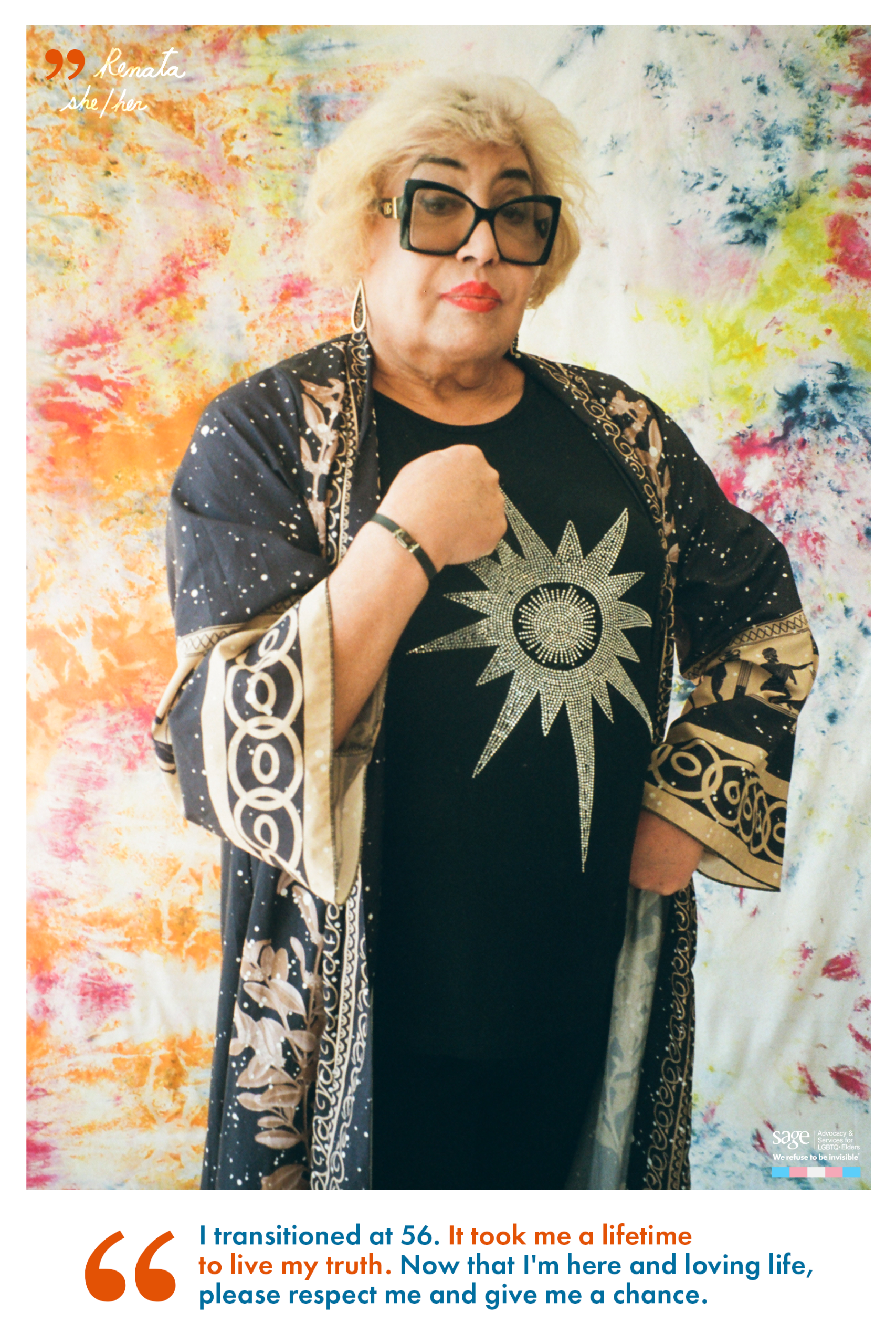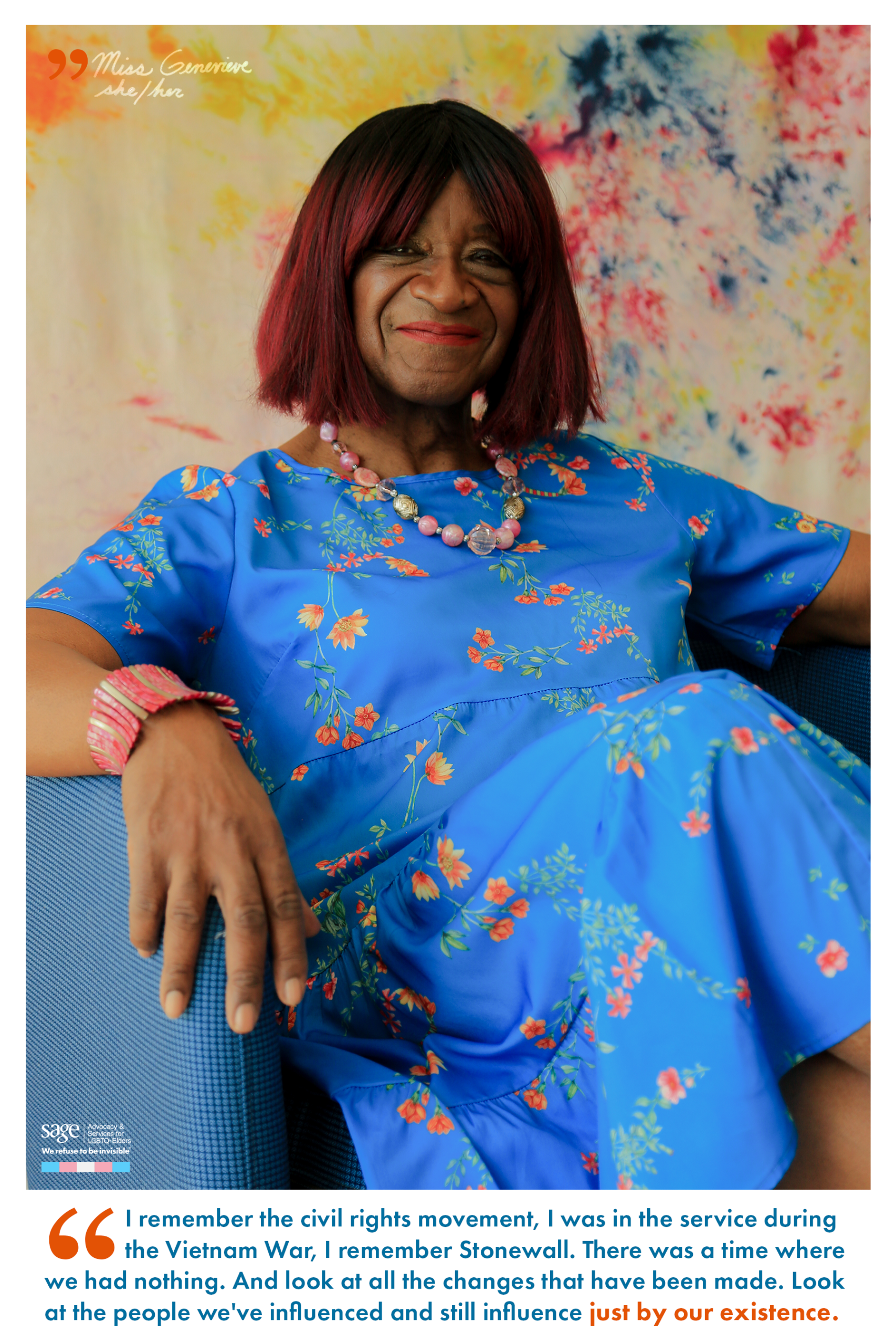The truth is, trans elders exist. They’ve always existed. But for too long, they’ve been invisible in our elder care systems — and in the stories we tell about aging. If you want to step up as an ally to trans and gender-diverse older adults, you’re already on the right path. Here’s how to walk it with dignity, respect, and a whole lot of heart.
Presence, not perfection
1. Start by Busting Some Myths
You might’ve heard: “There aren’t that many trans older adults.” Actually, there are — they just haven’t always felt safe to show up as themselves. Coming out later in life is common, often after retirement, divorce, or a health scare. For some, the closet has been a shield against losing family, housing, or community. But that doesn’t mean they aren’t there, or that this isn’t a priority.
2. Honor Their Stories — and Their Right to Privacy
Trans elders have faced decades of erasure and discrimination. When you’re providing care or just being a supportive friend, remember that sharing their gender identity is up to them. Use the name and pronouns they share, and don’t push them to tell more than they want to.


3. Affirmation Isn’t Optional — It’s Essential
Being a safe person for a trans elder isn’t about knowing every term or getting it perfect. It’s about affirming their dignity and agency:
- Celebrate milestones like a name change or a gender marker update.
- Show up to LGBTQ+ events and make your presence known — it sends a powerful message that these spaces matter.
- Respect chosen family structures, especially when they differ from biological family.
4. Ditch the Perfection — Just Show Up
You’re going to mess up. That’s okay. What matters is that you keep trying. When in doubt, remember: the goal isn’t to be the “perfect” ally. The goal is to be a safe one — someone who listens and learns.
5. Understand the Bigger Picture
For trans elders, navigating healthcare and long-term care can be daunting. Many fear being forced back into the closet to get the care they need. Others face systemic barriers: isolation, mistreatment, and invisibility. As an ally, you can advocate for policies and practices that respect their identities and honor their humanity.
The Bottom Line: Bodily Autonomy, Dignity, and Agency
Trans elders want what we all want: to be seen, to be heard, and to be treated with dignity. If these values guide your actions, you’ll be making a real difference.
Trans elders are here — and always have been. Let’s make sure they know they’re seen, supported, and celebrated.
Resources to Keep Learning & Supporting:
✅ SAGE: Services & Advocacy for GLBT Elders
✅ National Resource Center on LGBT Aging
https://www.lgbtagingcenter.org/
✅ LGBTQ Caregiver Center
✅ Justice in Aging: Medicare & Transgender Older Adults
Medicare & Trans Older Adults Guide (PDF)
✅ Health Professionals Advancing LGBTQ+ Equality (GLMA)
✅ Gender IQ Training
✅ To Survive on This Shore (Photography Project on Trans Elders)
Recent Comments